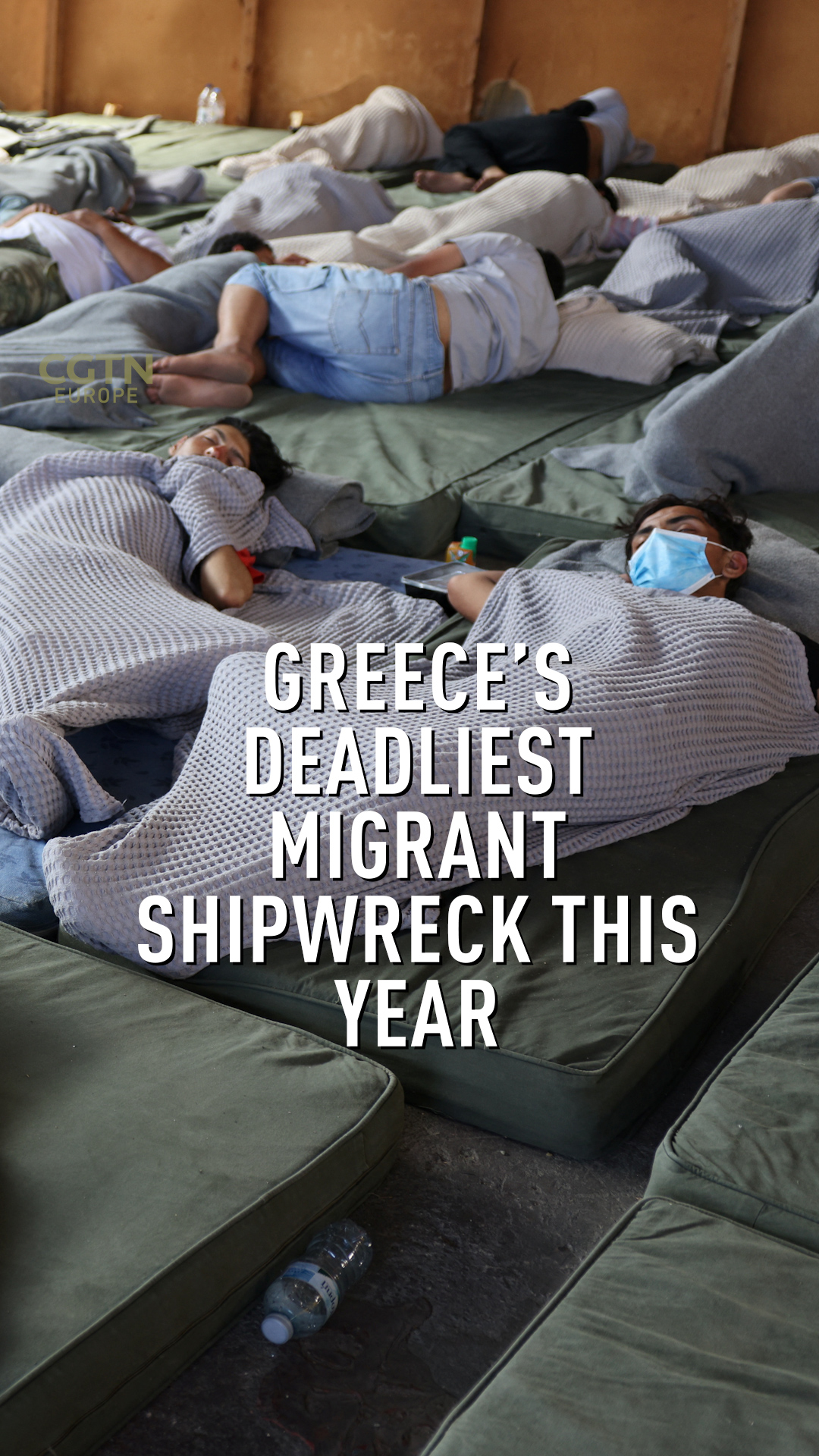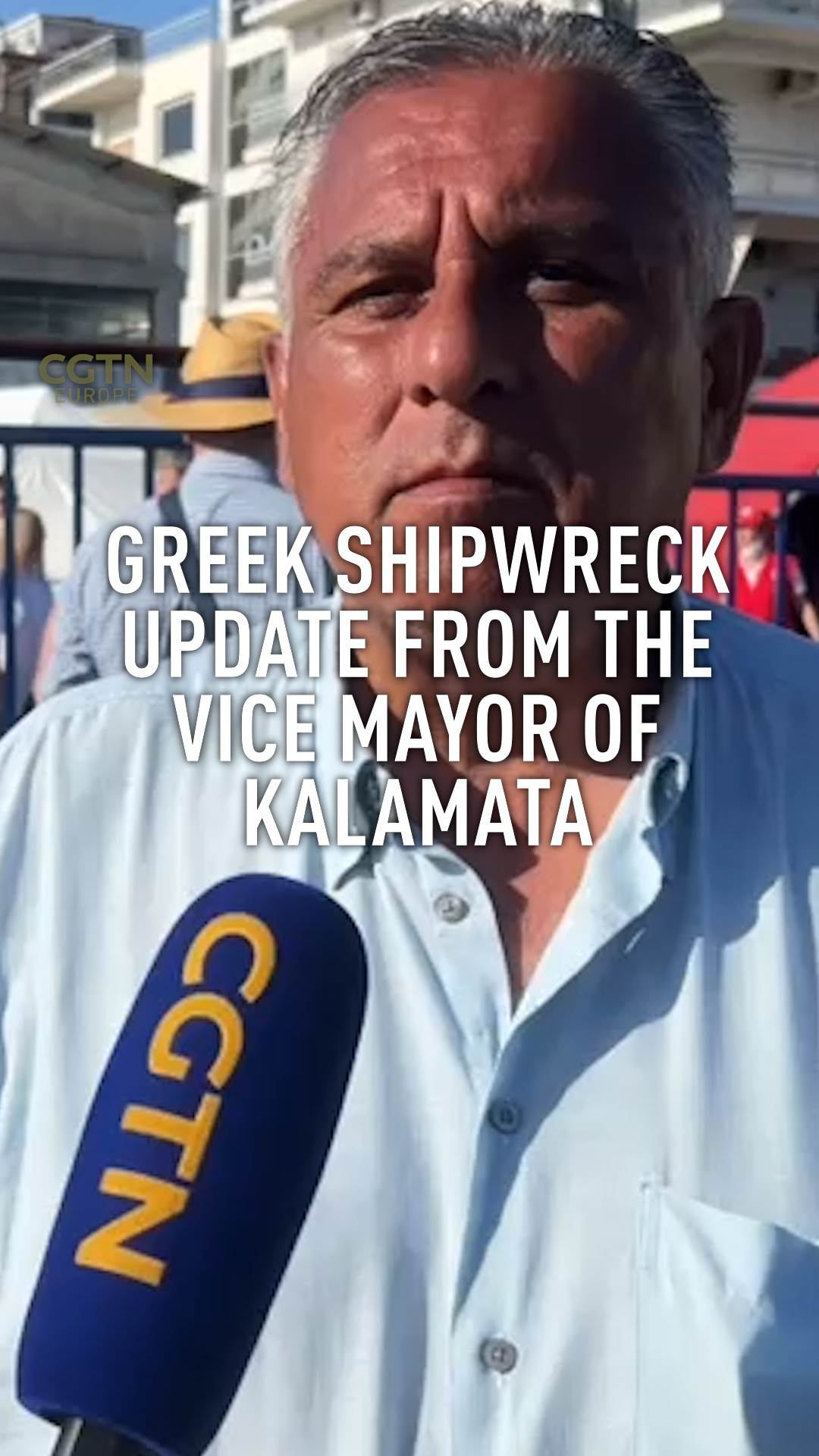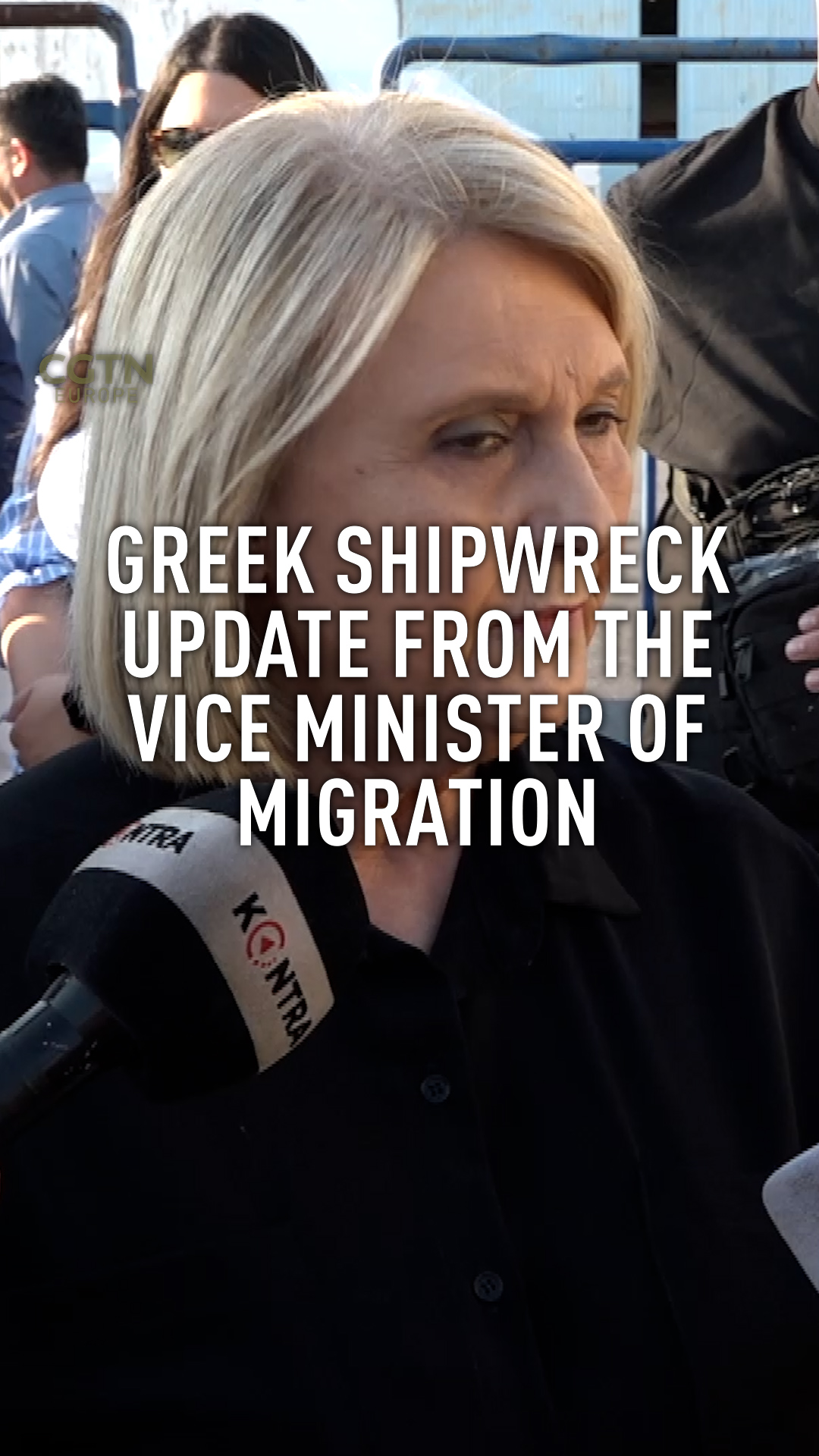At least 80 migrants drowned and many more were feared missing after their overloaded boat capsized and sank off Greece, in one of Europe's deadliest shipwrecks this year.
CGTN's Evangelos Sipsas was the first international correspondent on the scene - he reports from Kalamata Port.
01:32

By midday, 104 people had been rescued, authorities said, but it remained unclear how many were on board when the vessel – whose occupants the coast guard said had refused an offer of help – went under.
00:59

The Vice Mayor of Kalamata told CGTN he fears the death toll could be much higher.
"I heard that the number of people on the boat was high, but hopefully it's only rumors. Either way, we are prepared for the worst. It's our job to be prepared for these kinds of situations." he said
00:50

Greece is one of the main routes into the European Union for refugees and migrants from the Middle East, Asia and Africa. Most cross over to Greek islands from nearby Türkiye, but a growing number of boats also undertake a longer, more dangerous journey from Türkiye or Libya to Italy via Greece.
Greek Vice Minister of Migration, Sofia Voultepsi was also on the scene and wanted more done to prevent further deaths.
"We treat them but the problem is that we are in front again of a disaster in the sea." she said "The European Union must work harder in this field - we cannot afford any more losing lives in the sea".
00:23

State broadcaster ERT said the boat that sank in the early hours of Wednesday had set sail from the Libyan town of Tobruk, which lies south of the Greek island of Crete, and was heading towards Italy.
The disaster is the deadliest off Greece this year, and among the worst in Europe. In February, 96 people died when their wooden boat smashed into rocks on Italy's Calabrian coast during a storm.
Filippo Grandi, the UN High Commissioner for Refugees, called on governments to work together on creating safe pathways for people fleeing poverty and war. "Only sadness and anger after another deadly tragedy at sea in the Mediterranean," he wrote on Twitter.

Rescued refugees recover and await transportation to a trauma centre. /CGTN
Rescued refugees recover and await transportation to a trauma centre. /CGTN
How the disaster unfolded
The Greek coast guard said the boat was first spotted late on Tuesday by EU border agency Frontex in international waters around 80 kilometers southwest of the southern Greek coastal town of Pylos. A Greek coast guard vessel then approached the boat, which was en route to Italy, and offered help.
The large number of migrants on its outer deck "refused assistance and stated their desire to continue their voyage," the coast guard said.
A few hours later the boat capsized and sank, triggering a search and rescue operation.
Broadcaster ERT said most of those on board were young men in their 20s. The shipping ministry official said most were from Egypt, Syria and Pakistan, though Greek authorities did not confirm the vessel's port of departure.
Survivors were taken to the town of Kalamata, where the country's president Katerina Sakellaropoulou was expected to visit.

Greek President Katerina Sakellaropoulou arrives to assess the situation. /CGTN
Greek President Katerina Sakellaropoulou arrives to assess the situation. /CGTN
READ MORE
Baby among victims of migrant shipwreck
German rescue ship defies Italy over disembarkation order
Locals race to help in latest Greek boat tragedy
Greece was at the frontline of Europe's 2015 migration crisis, when nearly 1 million people arrived on its islands from Turkey before heading north to wealthier European states.
Numbers have fallen dramatically since a 2016 deal struck between Brussels and Ankara to stem the flows, while the conservative government of Kyriakos Mitsotakis had said a tough policy – which included more border patrols and migrant camps under heavy surveillance – helped keep arrivals low.
Mitsotakis's party won the most votes in elections in May and will be hoping to gain a clear majority in a new vote this month.
About 72,000 refugees and migrants have arrived so far this year in Europe's Mediterranean countries, according to United Nations data, with the majority landing in Italy and around 6,500 in Greece.
Nearly 1,000 people are estimated to have died or gone missing in the Mediterranean this year, according to the UN.

Subscribe to Storyboard: A weekly newsletter bringing you the best of CGTN every Friday
Source(s): Reuters